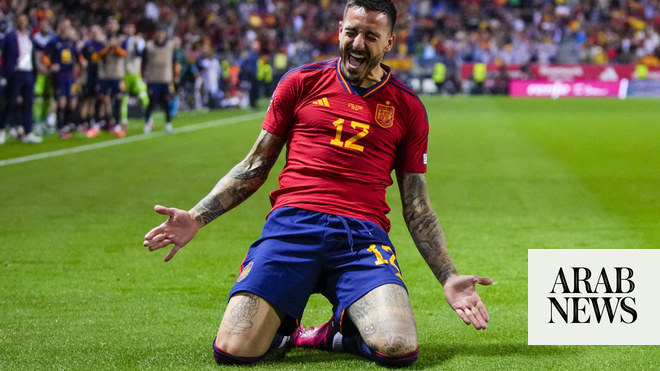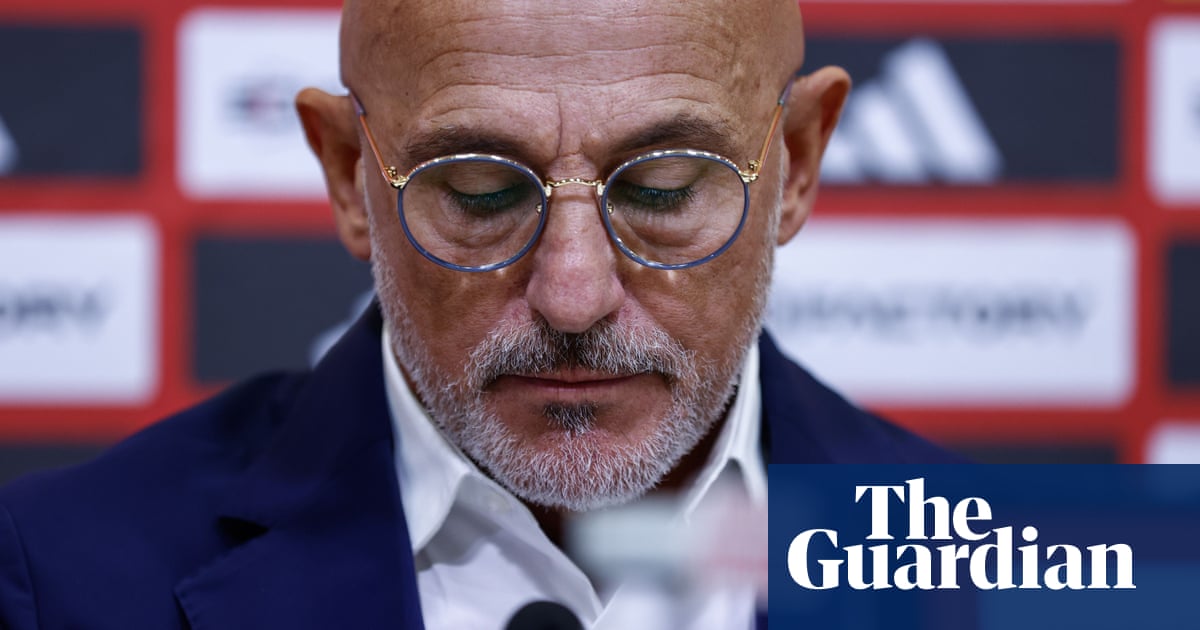
The night before Spain’s first game at Euro 2024, Josko Gvardiol was asked something about Luis de la Fuente, to which he replied: “Who?” Croatia’s press officer came to his rescue but if the defender felt a bit embarrassed, the truth is that back then he wouldn’t have been alone in not instantly recognising the name, or knowing much about the coach of the selección, their opponents the following day. It hadn’t been all that long since even some in Spain might have said something similar.
Born in Haro, La Rioja, which he reckons is the best place on Earth, De la Fuente is proud to be Spanish, Catholic and a bullfighting aficionado. He likes eggs and chips, is built like a brick outhouse and sleeps around four hours a night. His dad was a sailor, he loves the Rocky films and he’s fascinated by Rome, reading everything he can. He’s into Julio Iglesias, and his favourite song is probably Quijote. He led Spain to their first trophy in more than a decade and now, a month on from that press conference and in the same stadium, he takes them into the final of Euro 2024.
All these things we know. We do now, anyway. When he took over as Spain coach a few days after they had returned, defeated, from the Qatar World Cup, not a lot of people knew a lot of things about him. And they certainly didn’t imagine that bit about bringing the national team’s best days back. He was 61, a former full-back at Athletic Bilbao and Sevilla, and his only senior coaching job had been a poor 11-game spell with Deportivo Alavés in Spain’s 80-team, four-grouped third tier, in 2011. He was “discreet”, “quiet” and, yes, “unknown”, they said.
What little was known didn’t entirely convince people. He had been a coach in the Spanish youth setup, winning a European Championship with the under-21s and the under-19s, but that tended to get seen as the success of a system and his was a low profile. There had been other candidates for the Spain job, and his appointment didn’t really excite. He talked about shifting the style, but it felt as much a message as a reality, like it was what he had to say, only now revealed as real.
Appointed by Luis Rubiales, not the first choice of the sporting director, who subsequently departed, De la Fuente earns a fifth the salary Gareth Southgate does and it didn’t look as if he would have that for long. “I thought: ‘This is a big bull,’” he admitted recently; then, many thought it too big. When Spain were beaten 2-0 in Scotland, the criticism was furious. “Shipwreck,” shouted the cover of AS. Marca went for: “What’s the plan?” Worse, they said, he seemed OK with it: “I have told the players this is the path,” he had insisted post-game; this had “unfolded according to the established plan we had worked on”.
Recently, a podcast called La Libreta de Van Gaal recovered some radio clips from that night and it makes for some listening: it had been “Dantesque,” “indignant” and he was living in “Disneyland”. “I haven’t got a bloody clue what’s going on in his head,” one said. At these Euros, that same broadcaster said: “Is there anyone who hasn’t clambered on board De la Fuente’s boat yet?” to a soundtrack of a ferry sounding its horn.
Spain’s next get-together took them to Georgia, where they won 7-1; that was the beginning, the moment De la Fuente said he saw “a family” starting to form. Six months later, Spain won the Nations League and now look at them. “No one knows Spain’s present and future better than me,” De la Fuente said when he took over. “I’m not trying to show off, it’s just a fact.” Five of this squad won the European Under-21 Championship with him in 2019: Dani Olmo, Fabián Ruiz and Mikel Merino were starters in the final. Olmo, Merino, Pedri, Marc Cucurella and Unai Simón won Olympic silver with him two years later.
He also insisted that there would be “versatility”, pace, width, that the style would shift: “Playing on the counter is intelligent,” he said. And while it was repeated so often it felt like a recorded message, maybe even just what he had to say after a World Cup exit built on a thousand passes and a single shot, it turned out to be true. “He understood that it needed time for us to assimilate those ideas, the two or three concepts,” Rodri said before the tournament. “We’re more vertical, there’s a little less possession.”
Against Croatia, for the first time since 2008 Spain “lost” possession in a competitive game. Against Germany it happened again. Four teams have had more possession at Euro 2024, including England. No one has created more chances or scored more goals. Bit by bit, it all came out; so too did he, the public caution giving way to a man more at ease, more charismatic, cycling down to training each day in Donaueschingen, where session by session and game by game, he and his players have made quite a name for themselves.












